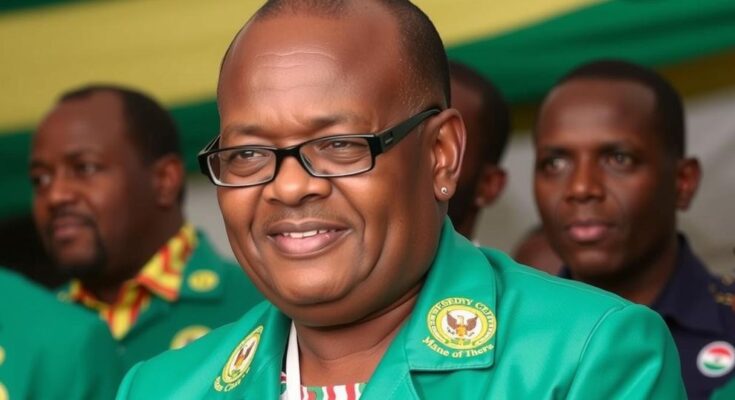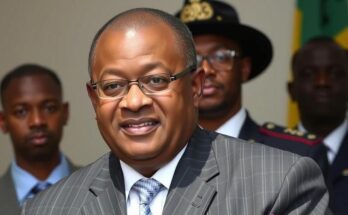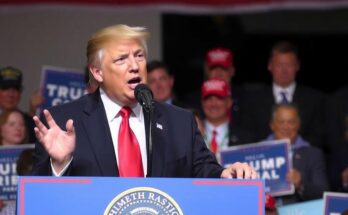Ghana’s ruling NPP candidate Mahamudu Bawumia conceded the presidential election to former President John Mahama of the NDC. Economic distress, including high inflation and debt issues, dominated the campaign, leading to a demand for change among voters. The NDC’s internal tally shows Mahama winning decisively, and official results are expected soon.
On Sunday, Vice President Mahamudu Bawumia of Ghana’s ruling New Patriotic Party (NPP) conceded defeat in the recent presidential elections, acknowledging the electorate’s yearning for change. The NPP’s loss, which culminated in the end of their two-term rule under President Nana Akufo-Addo, was largely attributed to the nation’s dire economic conditions, including soaring inflation and a debt crisis that prompted a $3 billion bailout from the International Monetary Fund (IMF).
In a press briefing, Mr. Bawumia expressed humility in accepting the people’s decision, stating, “The people of Ghana have spoken, the people have voted for change at this time and we respect it with all humility.” He promptly reached out to congratulate his opponent, former President John Mahama of the National Democratic Congress (NDC), whose supporters began celebrations following the announcement of their candidate’s victory.
The NDC reported that their internal review indicated Mahama received 56.3% of the votes compared to 41.3% for Mr. Bawumia, marking a decisive victory for the NDC. As economic hardships including currency devaluation and inflation above 50% persisted, voters made clear their desire for new leadership. Although inflation rates showed signs of stabilization, public dissatisfaction with the NPP’s handling of the economy had a significant influence on the electoral outcome.
Ghana’s political landscape has been marked by stability since returning to multiparty democracy in 1992, with the NPP and NDC alternating power. Mr. Bawumia’s campaign aimed to break this cycle and achieve an unprecedented third term for the NPP; however, he could not overcome the critical assessment of his predecessor’s economic management. The election results are expected to be officially confirmed by the electoral commission by Tuesday, further solidifying the NDC’s position in both the presidency and parliament.
The 2023 Ghana presidential election was characterized by significant economic distress, primarily driven by high inflation, currency devaluation, and a recent debt default, which culminated in a $3 billion bailout from the IMF. The ruling party, NPP, led by Vice President Mahamudu Bawumia, faced mounting criticism for its handling of these economic challenges, which ultimately became pivotal in the electoral process. The opposition, NDC, focused on these failures as a means to galvanize voter support, resulting in a decisive victory for former President John Mahama, who previously served from 2012 to 2017. The political context includes a history of alternating governance between the NPP and NDC since the re-establishment of multiparty democracy in Ghana in the early 1990s.
In summary, the recent presidential election in Ghana culminated in a significant victory for former President John Mahama of the NDC, as Vice President Mahamudu Bawumia conceded defeat amidst widespread economic discontent. This election marks a pivotal moment in Ghanaian politics, highlighting the electorate’s desire for change due to the NPP’s handling of economic issues. With the NDC now poised to lead the country, further developments regarding the official election results are anticipated shortly from the electoral commission.
Original Source: www.voanews.com




